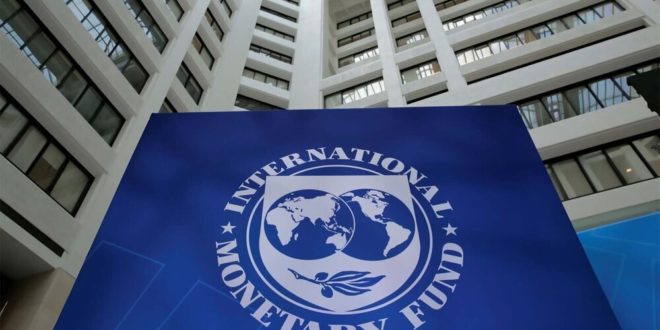The UK economy will shrink and perform worse than other advanced economies as the cost of living continues to hit households, the International Monetary Fund (IMF) has said.
The IMF said the economy will contract by 0.6% in 2023, rather than grow slightly as previously predicted.
However, the IMF also said that after the Autumn Statement it thinks the UK economy is now “on the right track”.
Chancellor Jeremy Hunt said the UK outperformed many forecasts last year.
But shadow chancellor Rachel Reeves said the figures showed the UK “lagging behind our peers”.
In its World Economic Outlook update, the IMF, which works to stabilise economic growth, said the UK’s Gross Domestic Product (GDP) would shrink rather than grow by 0.3% this year.
GDP is a measure for how well, or badly, an economy is doing and in a growing economy, each quarterly GDP figure will be slightly bigger than the quarter before.
If a country’s GDP falls for two quarters in a row, it means it is in recession and its economy is doing badly. Typically this means companies make less money and the number of people unemployed rises.
The IMF predicted the UK would be the only country – across the world’s advanced and emerging economies – to suffer a year of declining GDP. Even sanctions-hit Russia is now forecast to grow this year.
The IMF said its new forecast reflected the UK’s high energy prices and financial conditions, such as high inflation.
IMF chief economist Pierre-Olivier Gourinchas told the BBC that for 2022, the UK had had “fairly robust” growth at 4.1%, which he said was “one of the strongest growth numbers in Europe”.
“But it is true that we are forecasting a sharp slowdown in 2023, with growth that would turn even negative for the year.”
He said the revision reflected the “fact that we have a very challenging environment in the United Kingdom”, which he said was caused by high energy prices as well as “high dependence on liquid natural gas”.
The Bank of England has put up interest rates nine times since December 2021 in an attempt to reduce inflation – the rate at which prices rise. Mr Gourinchas said these rate rises fed “quickly into mortgages, because a lot of mortgages are adjustable rates”.
“So a lot of homeowners with mortgages are seeing an increase in their mortgage payments.”
Mr Gourinchas said another factor in the UK’s forecast was that employment was still below pre-pandemic levels.
He said the plans outlined by the Treasury in the months since the Autumn Statement showed the UK was “certainly trying to carefully navigate these different challenges and we think that they are on the right track”.
And the IMF said in 2024 it expected the UK economy to grow by 0.9%, up from a previous forecast of 0.6%.
 Home Of Ghana News Ghana News, Entertainment And More
Home Of Ghana News Ghana News, Entertainment And More





